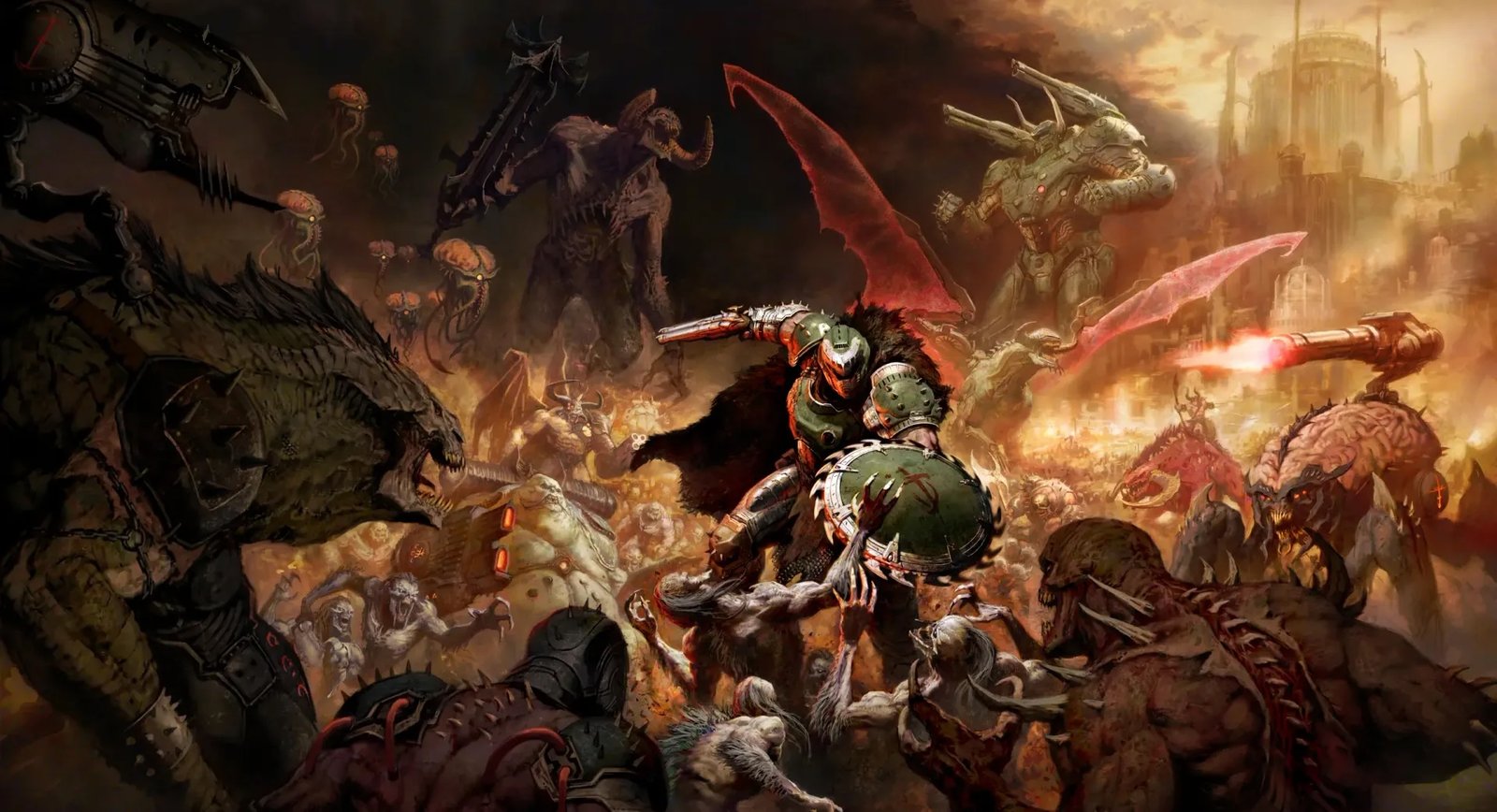Apparently Hell has frozen over.
Doom: The Dark Ages is already catching backlash—and not because the game looks bad. Nope, this time it’s over the physical preorder. You know, the one that includes a disc… that doesn’t actually have the game on it.
Yeah. You read that right.
That shiny piece of plastic? It’s just a glorified license. A $70 coaster with some badass box art and absolutely no substance. You still have to download the whole damn game like a digital peasant. And naturally, gamers who thought they were buying something they could own are canceling their preorders faster than Bethesda can push a day-one patch.
This isn’t just a Doom problem—in fact it’s becoming a common thing in gaming. One more nail in the coffin for physical media, and honestly? It’s exhausting. Between digital-only deluxe editions and discs that don’t do anything but redirect you to an install screen, companies are out here selling nostalgia with a side of empty promises.
Let’s talk about these so-called collector’s editions for a second. Remember when you used to drop some extra coin and actually get some heat in return? I’m talking statues, art books, soundtracks, steelbooks, posters—the kind of stuff that made you feel like you were part of the game’s world. Something you could touch, display, flex on your nerd friends with.
And what’s wild is that this trend doesn’t just water down the collector experience—it also feeds into the growing stigma around owning physical media. Gamers who still buy physical are treated like boomers clutching DVD box sets, when in reality, they’re just trying to preserve the damn game. Digital storefronts can disappear. Servers go offline. Companies pull titles without warning. And if you don’t have the files downloaded or backed up? Tough luck. You didn’t own that game. You rented access to it.
This is preservation we’re talking about. This is legacy. And it’s being traded in for cloud saves and micro transactions
But here’s the worst part: gaming companies are never held accountable for these stunts—as long as the game is successful.
If Doom: The Dark Ages ends up being a banger—and let’s be honest, it probably will—Bethesda will skate by unscathed. No backlash. No calls for change. Just headlines like “Gamers Embrace the Future of Physical Media” written by folks who didn’t even preorder it. Meanwhile, the people who did preorder get stuck with the equivalent of a hollow chocolate bunny—shiny on the outside, empty on the inside.
And we’ve seen this movie before.
Ubisoft did it. Sony did it. Hell, even Nintendo’s dipped their toes in the “you bought the box, now download the goods” pool. It’s become standard practice, and no one pushes back unless the game flops. When it doesn’t? Publishers get the green light to keep the grift going. Gamers complain for five minutes on Reddit, and then turn around and preorder the next thing out of habit.
Look, I get it. Digital is convenient. You don’t have to leave the house, you don’t have to swap discs, and everything’s neatly stored in your console’s library. But that convenience comes at a price: control. And companies aren’t just trying to sell you a game anymore—they want control over how you access it, how long you can play it, and whether or not you can ever reinstall it.
That’s why this Doom fiasco stings so hard. Not because it’s the first time this has happened, but because it keeps happening. And every time we let it slide, we inch closer to a future where owning your games is a relic of the past, and collector’s editions come with a JPEG of a statue instead of the real thing.
So if you’re canceling your preorder? Good. You definitely should. If you’re still riding with physical media? Keep fighting the good fight. And if you’re just now realizing that $70 disc you bought is actually a download receipt with a cardboard sleeve—welcome to the dark ages.
Literally.






